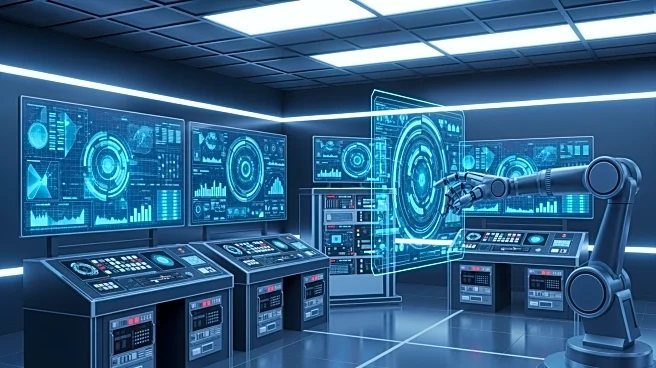What's Happening?
Michael Payne, the Trump administration's nominee for director of the Pentagon's Cost Assessment and Program Evaluation (CAPE) office, has addressed lawmakers regarding the challenges faced by the organization.
Payne, who has been serving as the acting director, emphasized that the CAPE office's workforce is currently strained and requires new technologies to enhance its capabilities. Payne, a former Air Force officer, has held various top positions within CAPE as a member of the Senior Executive Service. His remarks come amid broader discussions about the need for modernization within the Pentagon to maintain operational effectiveness and address emerging threats.
Why It's Important?
The strain on the CAPE office's workforce and the need for technological upgrades are significant as they impact the Pentagon's ability to efficiently assess and evaluate defense programs and costs. This office plays a crucial role in ensuring that defense spending is optimized and aligned with strategic priorities. The call for new technologies reflects the growing importance of adapting to rapid advancements in military technology and maintaining a competitive edge. The outcome of Payne's nomination and subsequent actions could influence the Pentagon's approach to resource allocation and strategic planning, affecting defense contractors and military readiness.
What's Next?
If confirmed, Michael Payne is expected to lead efforts to address the workforce challenges and implement technological advancements within the CAPE office. This may involve advocating for increased funding or policy changes to support modernization initiatives. The Pentagon's focus on enhancing its capabilities could lead to collaborations with technology firms and defense contractors to develop and integrate new systems. Lawmakers and defense stakeholders will likely monitor these developments closely, as they could have implications for defense budgets and national security strategies.
Beyond the Headlines
The emphasis on workforce strain and technology needs at the CAPE office highlights broader issues within the defense sector, such as the recruitment and retention of skilled personnel and the integration of cutting-edge technologies. These challenges are not unique to the CAPE office but are reflective of wider trends in the military and defense industry. Addressing these issues may require a cultural shift within the Pentagon to prioritize innovation and adaptability, potentially influencing long-term strategic planning and defense policy.









